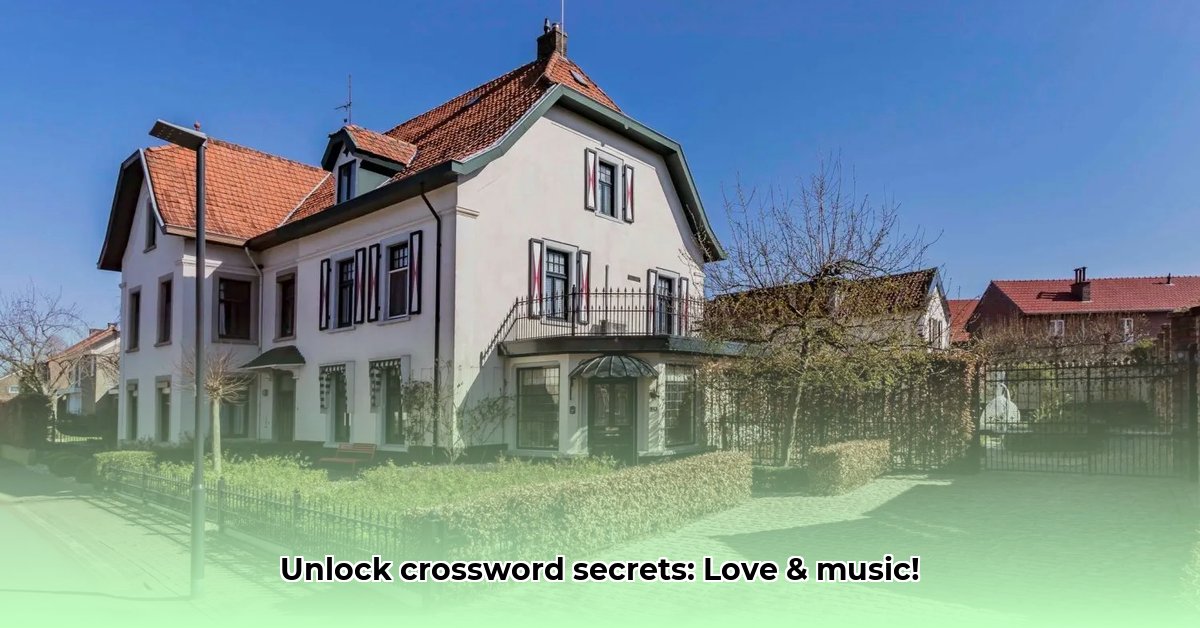
The Unexpected Connection Between Music and Relationships: A Crossword Puzzle Adventure
Ever wondered how deeply music influences our relationships? It's more than just a soundtrack, is it? Think of that special song from your first date, or the upbeat tunes at a memorable braai with your mates. This link between music and relationships runs deeper than we often realise. To explore this, we delved into something unexpected: Afrikaans crossword puzzles focusing on "Relatie Waar Muziek In Zit" (Relationship Where Music Is In). For more puzzle examples, check out the crossword examples. The results? Truly fascinating!
These puzzles aren't just word games; they're micro-narratives created from words, providing a linguistic snapshot of how we connect music and personal bonds. By analysing the answers, we gain insight into the subconscious connection between tunes and our relationships.
What the Crosswords Revealed: More Than Just Notes
The crossword answers were incredibly diverse. Some were simple, like "band" – representing musical groups and friendships. Others were more complex, like "geluidsband" (soundtape), suggesting deeper, more personal connections. Think of a song instantly transporting you to a specific memory with a loved one – that's the emotional richness these longer answers implied. It's like uncovering a hidden musical tapestry woven from shared experiences and individual interpretations.
We found a spectrum of connections. Some clues were obvious, like the music at a wedding or family gathering. Others were subtle, highlighting how a song might be tied to a specific memory, a shared experience, or even an inside joke between friends. It showed how music acts as a powerful tool for remembering, sharing, and strengthening relationships.
More Than Just a Soundtrack: Music's Many Roles
What stood out was the sheer variety of answers. This highlighted music's multifaceted role in our lives. It’s adaptable, changing depending on the relationship and context. It can be the romantic soundtrack to a budding romance, the comforting background hum during a quiet evening with family, or even the slightly awkward soundtrack to a tense moment between friends. The context is key!
Digging Deeper: Unearthing Hidden Patterns
Imagine comparing the frequency of words like "band" versus "geluidsband" across many puzzles. This could reveal fascinating patterns, perhaps even uncovering cultural differences in how people associate music with relationships within a particular language. It could unearth important nuances around the concept of "Relatie Waar Muziek In Zit" and how it's understood in different communities. Isn't that a thought-provoking idea?
Taking it Further: Real-World Applications
This crossword puzzle analysis has massive potential. It's not just an interesting academic exercise; it could have far-reaching implications. Have a look at how different fields could utilise this research:
- Linguists: Could explore how musical metaphors evolve within different relationship contexts over time. How have these metaphors changed across generations, and what does that tell us about society?
- Music Therapists: Could use this understanding with patients, leveraging music as a communication and self-discovery tool. Think of using favourite songs to discuss shared memories and emotions.
- Marketers: Could create marketing campaigns deeply resonating with people by tapping into this powerful music-relationship connection. This opens up exciting opportunities for more targeted, engaging advertising.
How to Use Music Therapy to Improve Relationship Communication
Want to know how music can strengthen your relationship? It's more than just sharing a favourite playlist, bru. Think deeper: the rhythm of a shared dance, the emotional resonance of a familiar song – these are powerful relationship tools.
The Shared Beat: Music and Brain Sync
Neuroscience shows that when we listen to music together, our brains synchronise. This "brain-to-brain coupling" creates a shared emotional experience, strengthening bonds. It's like a silent conversation happening at a deeper level – a fantastic way to build empathy. That feeling of goosebumps when you hear your song? That's your brains syncing up, creating a powerful shared memory.
Beyond the Beats: Using Music Therapy
Using music therapy to improve communication isn't about becoming music therapists. It's about consciously incorporating music into your relationship to deepen understanding and connection. Here are some practical steps:
- Active Listening (Musical Style): Pay attention to your partner's musical choices. What genres do they gravitate towards? What emotions do those songs evoke? This provides insights into their inner world.
- Shared Musical Experiences: Go to a concert, attend a live music session, or create a collaborative playlist. Shared enjoyment strengthens your bond and creates lasting memories.
- Music as a Communication Tool: When words fail, music can express feelings. Let music bridge conversations about unspoken emotions.
- Therapeutic Jam Sessions (metaphorical!): Instead of arguing, engage in calming, creative activities together. Think painting to music, or dancing. This aids mutual understanding and reduces stress.
The Power of Shared Rhythms
Music taps into primal parts of our brains – those involved in emotion and bonding. Music's rhythmic pulse subtly syncs our brains, moods, and emotions. This improves communication by creating a more receptive climate for heartfelt discussions. It's not about fixing problems; it's about creating a fertile ground for growth and more communicative interactions. It's about creating a safe space where honest emotions can surface.
Navigating the Challenges
Music isn't a magic bullet. Musical preferences can differ, and conflicts can still arise. The key is to approach music as a tool for enhancing communication, not a replacement for open dialogue. Remember that.